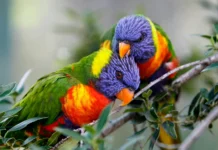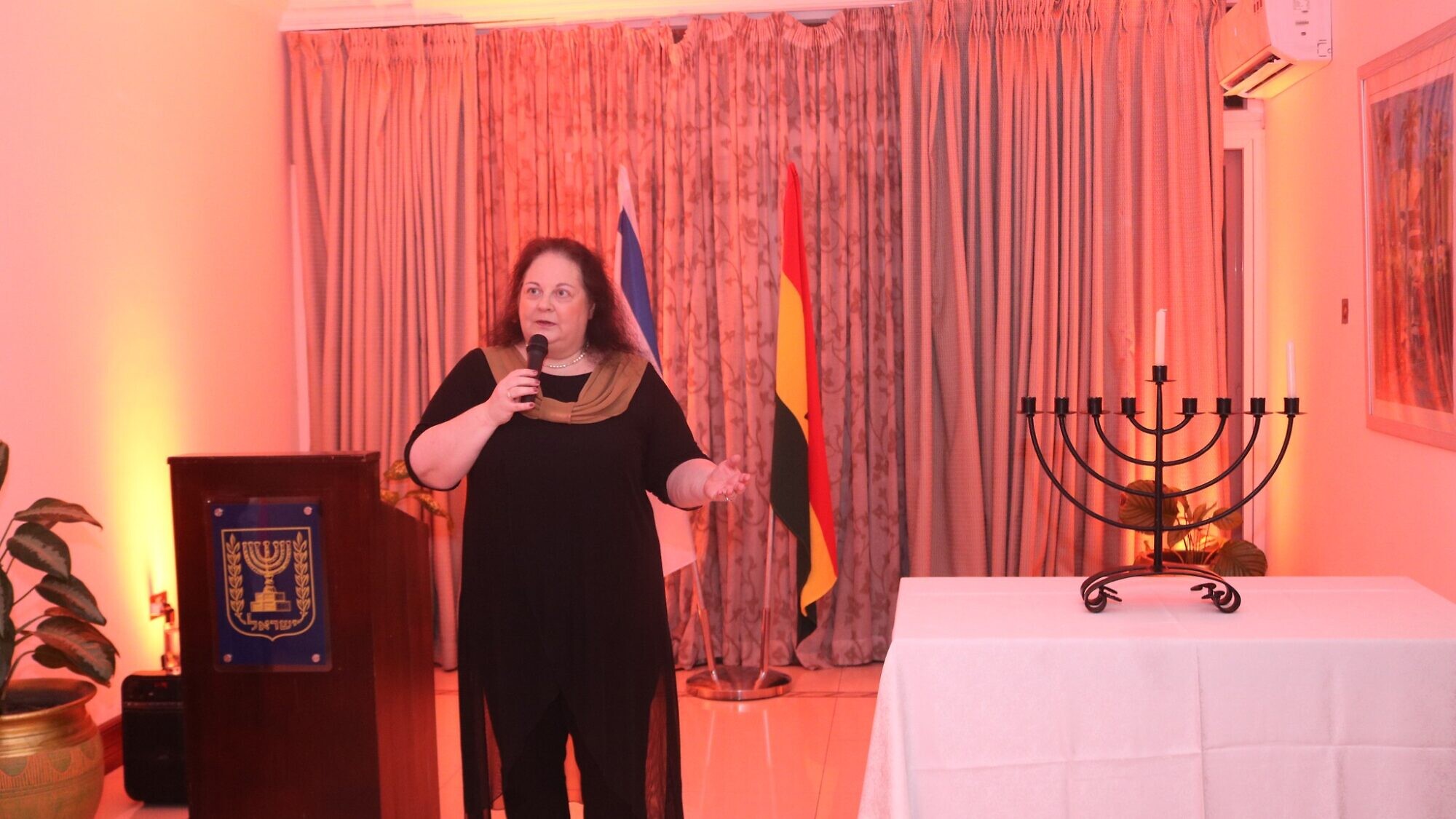Accra, GHANA—Shlomit Sufa talks shop about movies, politics and religion for nearly an hour with JNS in her office at the Israeli embassy, anonymously housed inside a near-empty glass high-rise in central Accra, before getting down to business.
The outgoing Israeli ambassador to Ghana has a disarming, warm approach, and she describes her approach to her work as a mixture of soft diplomacy and straight talk, with a constant sense of wonder and gratitude.
“As a girl, I dreamt of this. I read book after book, and I traveled in my mind,” Sufa, who has served in the Israeli diplomatic corps for 23 years, told JNS. “Now, I wake up to the sound of tropical rains and colorful birds.”
“I have seen the world, and I never stop being amazed,” the 53-year-old added.
Given that Sufa devoured books so extensively as a girl, JNS asked what volume influenced her the most. Without a pause, she says the 1911 novel In Desert and Wilderness by Polish Nobel laureate Henryk Sienkiewicz.
“I was just a little girl when I read about these two children roaming the world in a great adventure, and I knew I wanted to experience that one day,” Sufa told JNS.
A focus on women and girls
Sufa, who trained and worked as a lawyer, began her post in Accra nearly three years ago, on Aug. 27, 2021. She realized early on that being an attorney wasn’t for her.
“As a diplomat, the goal is to create a win-win,” she told JNS. “I prefer to seek an outcome where good can be done on all sides.”
Her prior diplomatic posts include deputy chief of mission at the Israeli embassy in Canada (2014-19); deputy director of the Israeli Foreign Affairs Ministry’s European department (2012-14); deputy ambassador of Israel to Switzerland and Lichtenstein (2008-12); deputy director of the East Africa department (2005-08); and deputy ambassador of Israel to Ethiopia, Rwanda and Burundi (2002-05).
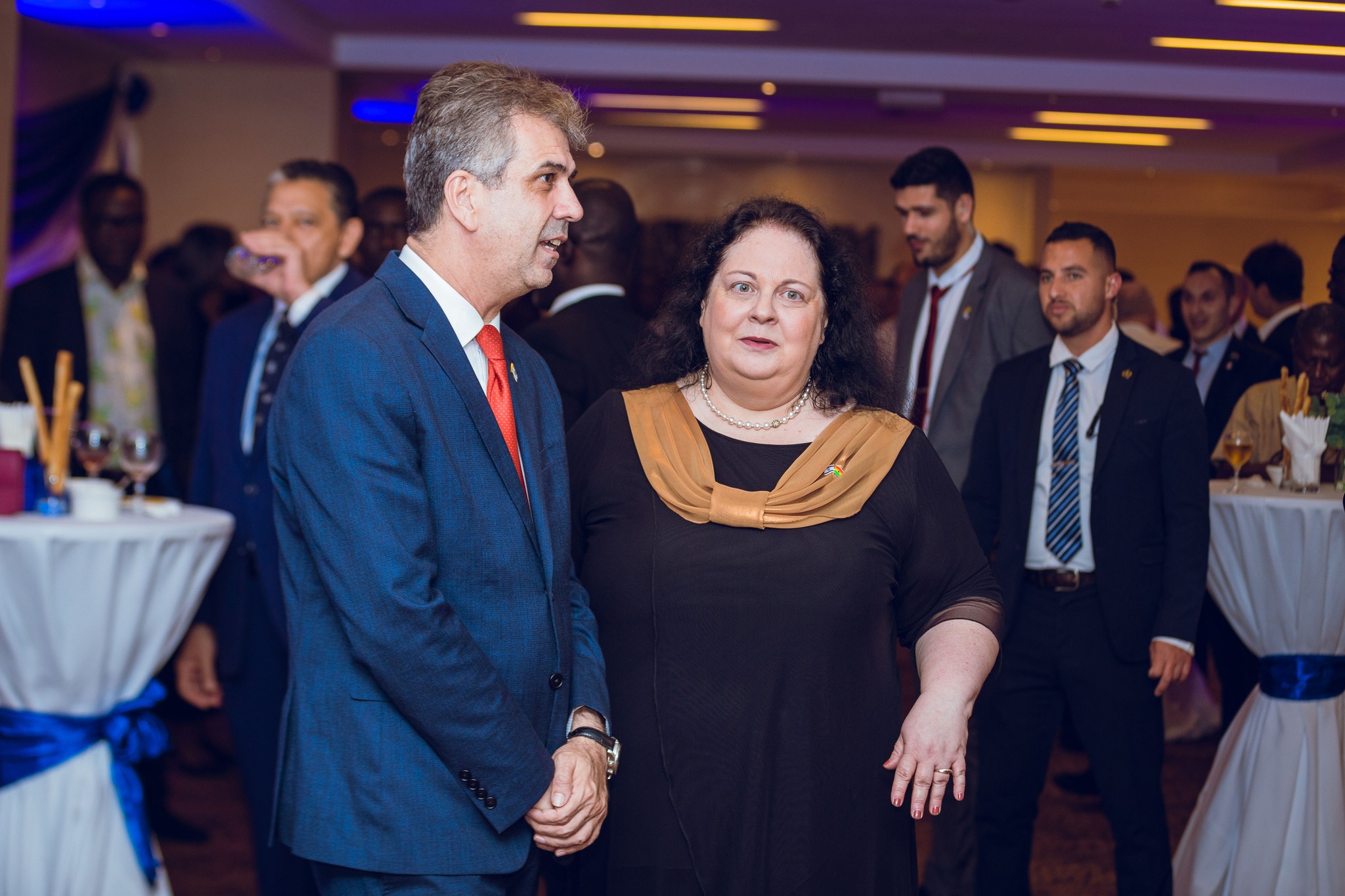
She came to Ghana with her husband, David Sufa, and their family.
Sufa is the kind of person that when a reporter first met her at a Chabad Lubavitch of Ghana event a few years ago, the ambassador noticed the reporter uncomfortably hobbling on high heels on a cobblestone floor.
“I never understood why women subject themselves to shoes like those,” she told a reporter before—in rapid succession—rattling off the name of an apparently more comfortable Israeli shoe, and then planting a firm handshake and introducing herself.
In her nearly three years in Ghana, Sufa established the 1,000-tree-strong “Jerusalem Forest” within Accra’s Chippa Forest, provided information technologies for use in Ghanaian classrooms and launched the Israeli Green Innovation Competition, which promotes “Israel’s renowned strengths in agriculture and innovation” and stimulates “the growth of these sectors in Ghana,” per the Israeli embassy.
The ambassador has also empowered women and girls in the country with the Gari Processing Centre for women farmers. (Gari is a kind of flour.) “As an embassy, we recognize the work of rural women in Ghana and their contributions to the development of the country,” Sufa said in 2022, announcing the center.
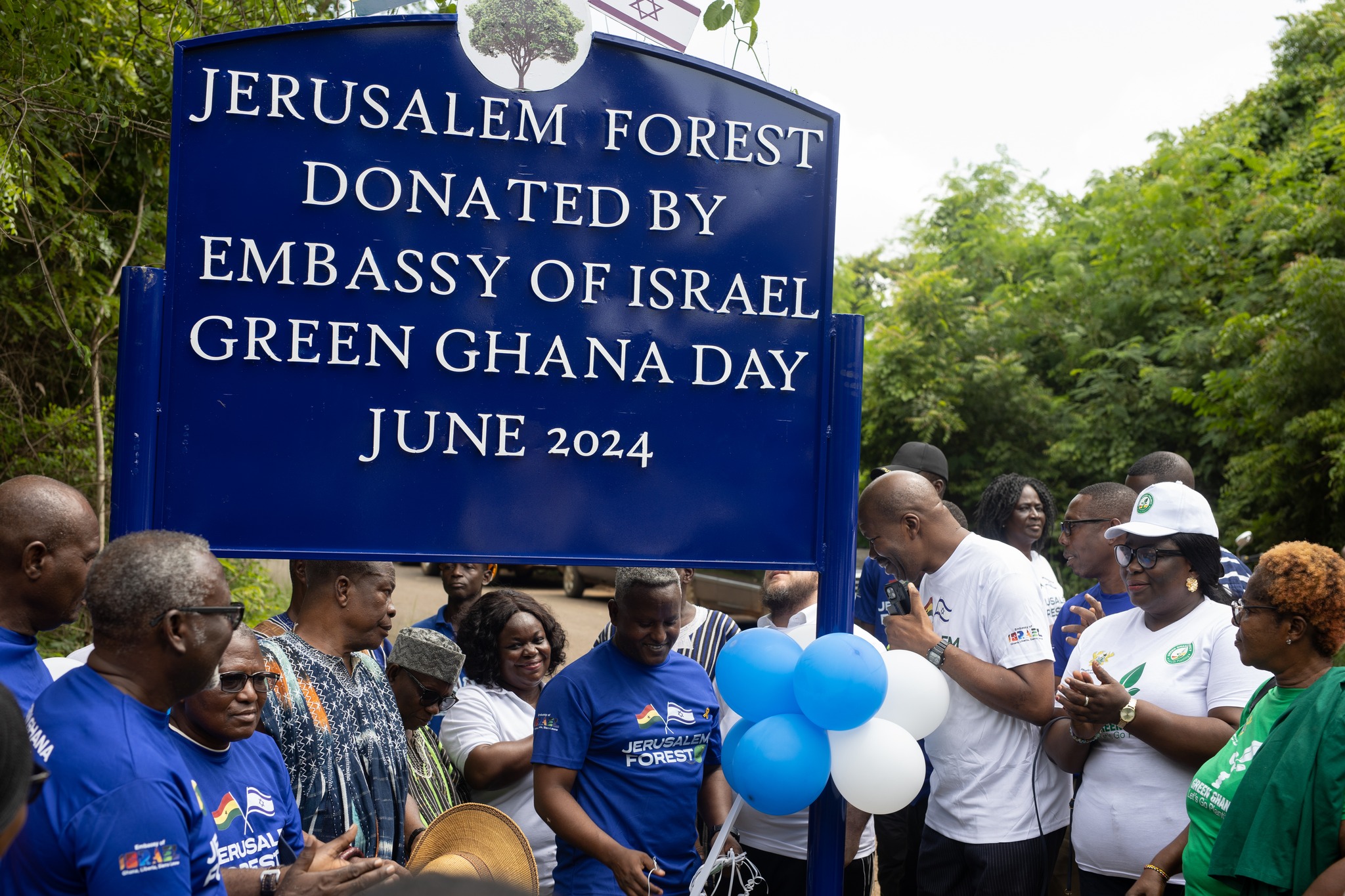
She has also worked with the Ghana nonprofit Street Girls Aid, which helps young girls in shelters, and with female Ghanaian entrepreneurs. JNS asked what inspired her passion for such projects; Sufa cited another strong Israeli woman who established the Ghana-Israel relationship.
A year after Ghana gained independence, in 1958, Ghana’s then-President Kwame Nkrumah invited Golda Meir, then Israel’s foreign minister, to attend the country’s first independence day celebration.
In Ghana, Meir was inspired by what she called “an old people in a young country” and saw a connection between the two young nations and their yearning and fight for sovereignty in their own land.
After Meir’s visit, she and Israeli Prime Minister David Ben Gurion established Mashav, Israel’s international development agency. For more than 60 years, Mashav has contributed to Ghanaian education, agriculture, entrepreneurship and healthcare.
A haven for Jews
Israeli flags can be seen flying outside of homes and businesses and on public transportation in Ghana, and the country’s Jewish community of about 500 reports that it is a safe haven for Jews, particularly after Oct. 7.
“Ministers and officials would stop by and just express their solidarity and care,” Sufa told JNS. “They sat with me and checked on me. It meant a lot to know that not only am I working in a friendly environment but that the people truly care.”
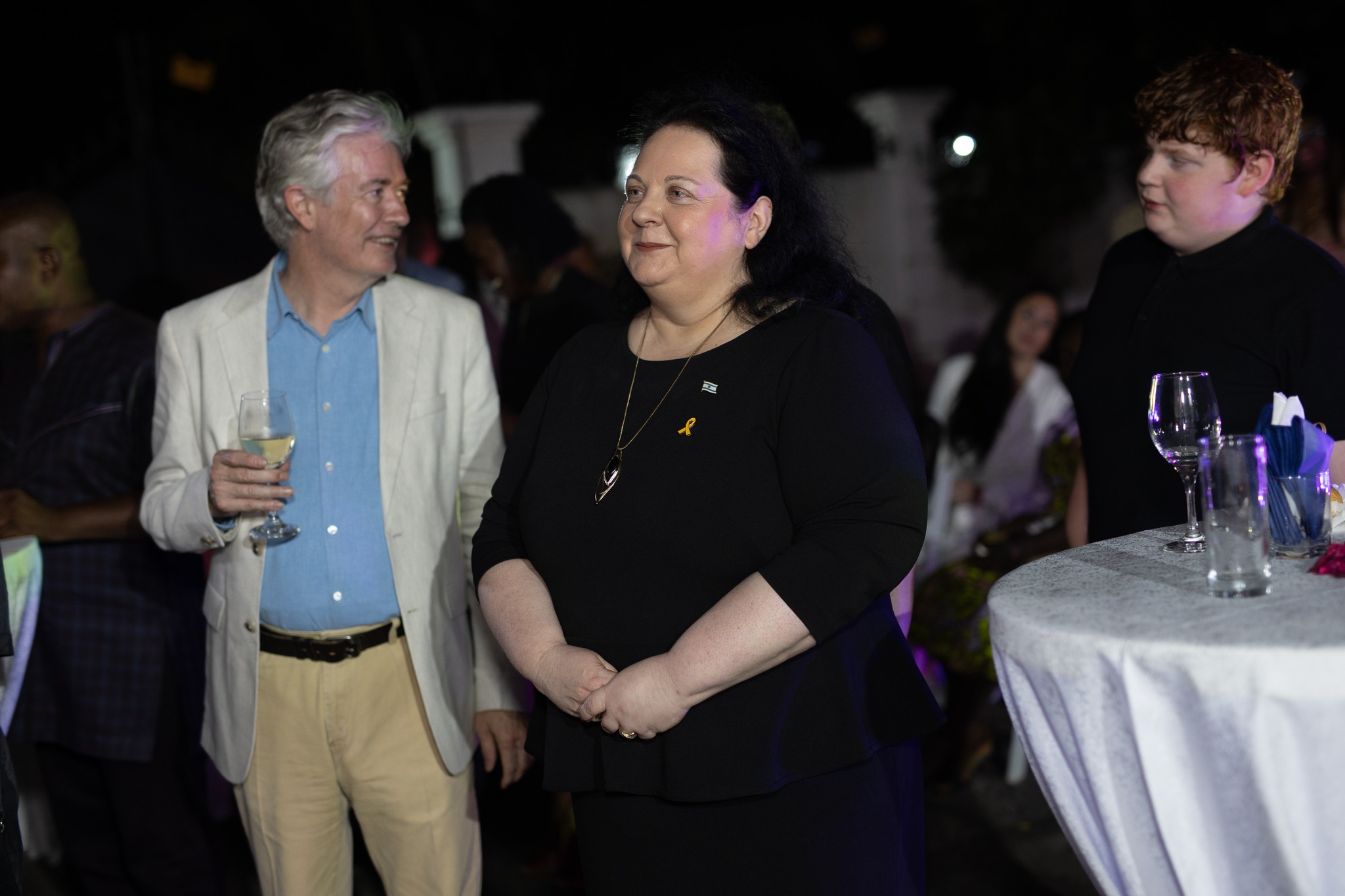
Since Oct. 7, Sufa and her staff have spread awareness among Ghanaian politicians and other stakeholders about the many challenges Israel faces. In addition to the flora and markets of Ghana, her Instagram account shows an enormous roadside sign calling for the more than 100 hostages who have been held captive since the Hamas terrorist attacks on that Black Shabbat to be brought home from Gaza.
The Israeli Foreign Ministry provided counseling for her and embassy staff, recognizing the emotional toll that it has taken on Israel’s representatives in the aftermath of Hamas’s terror attack, Sufa told JNS.
“I made sure everyone at the embassy knew that I was accepting that help, so that they should too, and my door hasn’t been closed since the massacre,” she said. “We are more than a team. We are family, and we are all hurting while working 24/7 to do our part.”
Leaving the country after three years is going to be difficult, she told JNS: “As a diplomat, you leave pieces of your heart all over the world, and those pieces stay there. It’s a blessing, but it’s not always easy.”
She notes that work remains for the Jewish state in the region. “First and foremost, it is crucial that Israel is reinstated as an observer nation to the African Union and through that deepens its commitment to the region,” she told JNS. “There is so much to gain from this cooperation.” (Israel used to be an observer but had its status suspended in 2023 following intense lobbying efforts by Algeria and South Africa.)
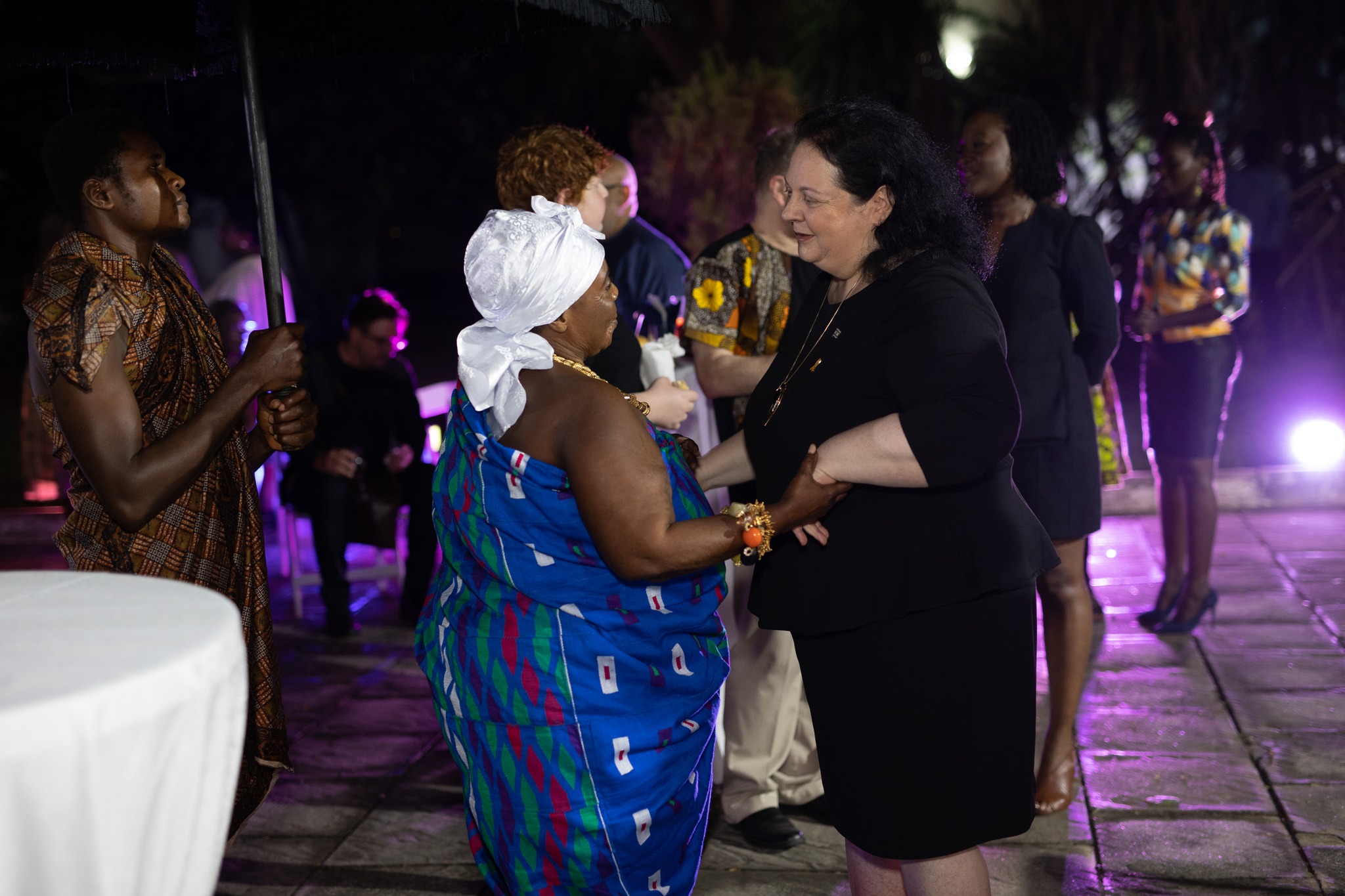
But she’s ready to return to Israel.
“I can’t wait to get home. It’s time,” she said. “I have never felt more connected to my country, to my people. When I get back, I will work twice as hard as before, because I feel the urgency.”
“We diplomats are not just figureheads or bureaucrats,” she added. “We have an important role in securing Israel’s future, and I am so proud to be doing just that.”




